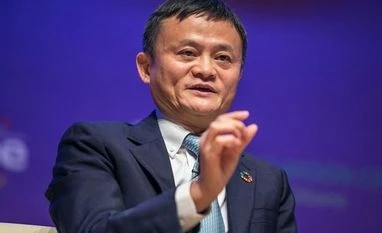The country’s market watchdog said on Thursday that it had opened an investigation into whether the e-commerce group Alibaba had engaged in monopolistic practices, such as restricting vendors from selling merchandise on other platforms. Separately on Thursday, four Chinese financial regulatory agencies, including the central bank, said they would meet soon with Ant Group, Alibaba’s finance-focused sister firm, to discuss new supervision. The stepped-up scrutiny of Alibaba and Ant — the pillars of the business empire of Jack Ma (pictured), China’s most famous tycoon — coincides with efforts by the United States and European Union to curb the power of Western internet powerhouses, such as Google and Facebook.
China has produced its own crop of powerful internet titans, and they have been celebrated as icons of the nation’s technological advancement. The government kept a tight grip on what people read and said on these platforms. But the authorities were less responsive to concerns about the companies’ size and clout, even as the businesses reached deeper into the lives of ordinary people in China than the American internet giants have elsewhere.
Apart from Alibaba and Ant, China’s leading internet groups include JD.com and Pinduoduo in digital commerce; Tencent in gaming, social media and mobile payments; ByteDance in short-form entertainment; Didi Chuxing in ride hailing; and Meituan in food delivery. Some of them, like Alibaba, have shares that trade in New York or Hong Kong.
On Thursday, People’s Daily, the main newspaper of the Chinese Communist Party, swiftly endorsed the inquiry into Alibaba in an article that appeared to be a sign of broader backing and coordination behind the move.
“This is an important step in strengthening antimonopoly oversight in the internet sphere,” the article said. “This will be beneficial to regulating an orderly sector and promoting the long-term healthy development of platforms.”
Alibaba’s New York-listed shares fell more than 13 percent on Thursday.
Alibaba said that it would cooperate with regulators and that its businesses were operating normally in the meantime. Ant said it would “seriously study and strictly comply with all regulatory requirements and commit full efforts to fulfill all related work.”
Frank Fine, the head of international antitrust and data privacy at DeHeng Law Offices, said acting against big internet platforms in the United States, China and Europe would come with significant challenges.
“There’s going to be a certain reluctance to harm these very successful companies, which have huge ecosystems that are responsible for thousands of employees,” he said. “There’s going to be a lot of pulling hair, pulling teeth, trying to figure out, ‘OK, we have to do something. What’s it going to be?’
Beijing’s pushback against Big Tech erupted out into the open last month, when officials halted Ant’s long-awaited initial public offering just days before its shares had been expected to begin trading. Earlier, Mr. Ma, by some counts China’s richest man, had publicly accused Chinese regulators of being too obsessed with containing financial risk.
Ant’s Alipay app has become an indispensable payment tool for hundreds of millions of people in China, but regulators have been wary of the company’s growing influence in small loans and credit products. The group’s I.P.O. had been on course to be the largest in history.
The week after the listing was delayed, China’s market regulator released proposed rules aimed at combating anticompetitive behavior by internet companies. The regulations covered practices including using a platform’s power to collect unnecessary data on users and locking users into specific platforms by making it hard for them to switch to others.
Alibaba’s US-listed shares tumble the most amid inquiry concerns
Alibaba Group Holding’s US-listed shares tumbled the most ever on concern over China’s inquiry into alleged monopolistic practices at the e-commerce company. The stock fell 13% in its biggest one-day drop on record. The decline took Alibaba to its lowest level since July, and the stock is now down 30% from an October peak. Roughly 141 million shares exchanged hands, the most for a single session since its 2014 debut. Bloomberg
To read the full story, Subscribe Now at just Rs 249 a month
Already a subscriber? Log in
Subscribe To BS Premium
₹249
Renews automatically
₹1699₹1999
Opt for auto renewal and save Rs. 300 Renews automatically
₹1999
What you get on BS Premium?
-
Unlock 30+ premium stories daily hand-picked by our editors, across devices on browser and app.
-
Pick your 5 favourite companies, get a daily email with all news updates on them.
Full access to our intuitive epaper - clip, save, share articles from any device; newspaper archives from 2006.
Preferential invites to Business Standard events.
Curated newsletters on markets, personal finance, policy & politics, start-ups, technology, and more.
Need More Information - write to us at assist@bsmail.in
)